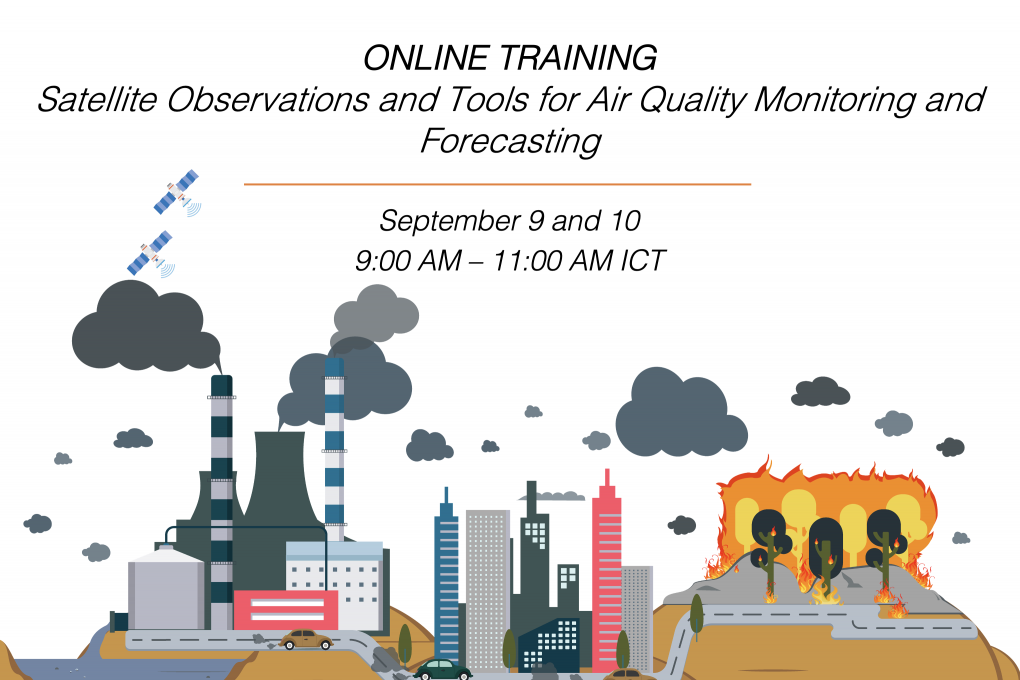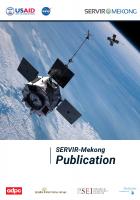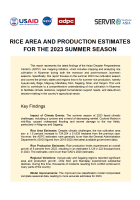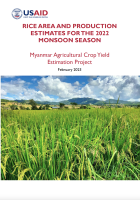Satellite Observations and Tools for Air Quality Monitoring and Forecasting

Background
During hot and dry months, parched vegetation coupled with small human-made fires often results in uncontrolled forest fires. Agricultural burning and forest fires, including transboundary haze, contribute to high levels of pollution. Forest fires release particulate matter (PM) into the atmosphere including PM2.5 which are microscopic particles with a diameter of 2.5 microns or less – 30 times smaller than the diameter of the human hair.
Chronic exposure to PM2.5 increases the risk of developing cardiovascular and respiratory diseases, as well as of lung cancer. A recent research paper published by
Learning Objectives
By the end of this training, participants will be able to apply SERVIR-Mekong’s resources for air quality monitoring:
- Understand how NASA and SERVIR-Mekong resources are used in decision-making for PM2.5 monitoring, and forecasting purposes.
- Access freely available NASA and SERVIR-Mekong web tools for visualizing and acquiring PM2.5 forecasting data.
- Understand the strengths and weaknesses of NASA and SERVIR-Mekong data products on Air Quality Monitoring and Forecasting.
Prerequisites
Participants should have a basic understanding of remote sensing. This training will also include hands-on exercises.
Expected Participants
This training is primarily intended for local, national, regional, and international organizations and academic institutions involved in agricultural burning, wildfire, air quality management and forecasting. Those with an interest in applying remote sensing and global models for air quality applications will also find this training useful.
Proof of Completion
All participants who successfully complete the training will receive a certificate from ADPC.
Additional Details on the Training and Agenda
Registration
Please register here by September 8.
Contact Information
Mr.Aekkapol Aekakkararungroj









